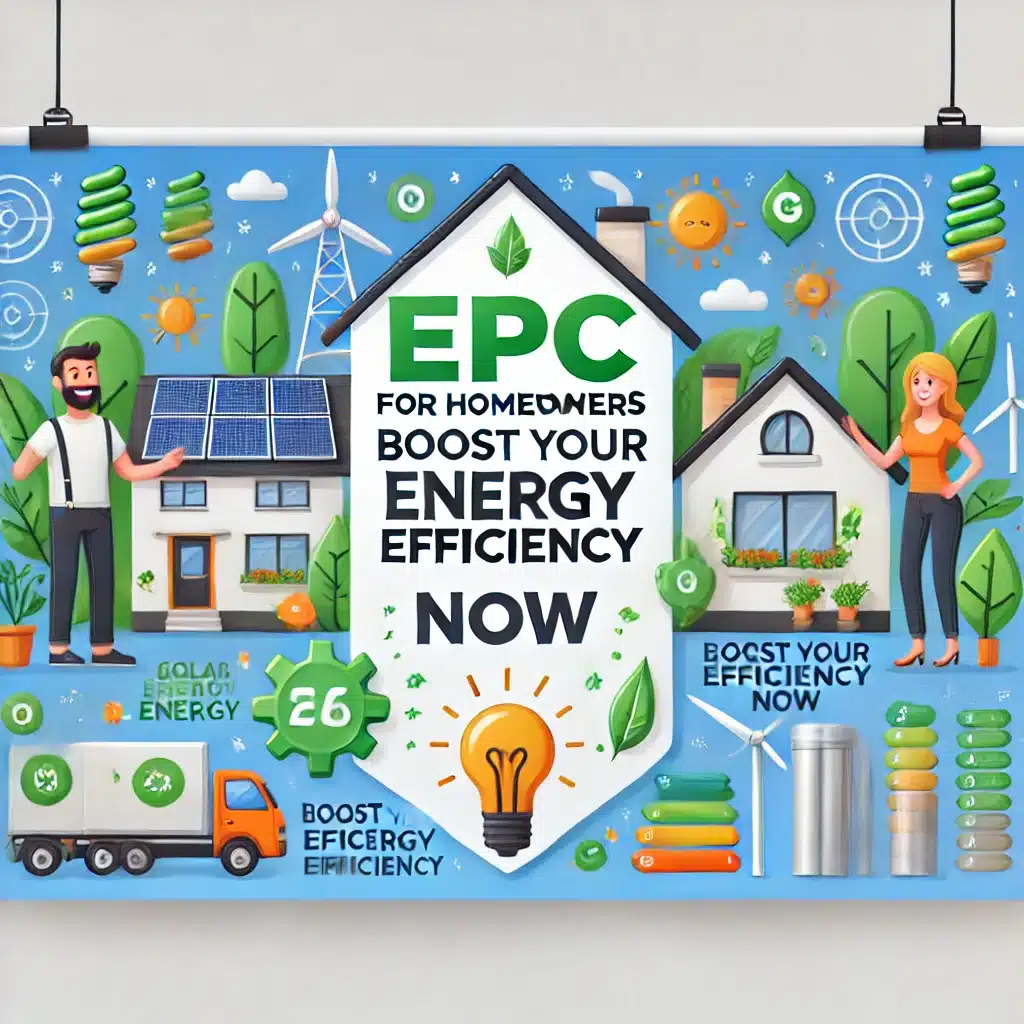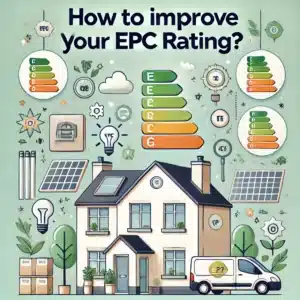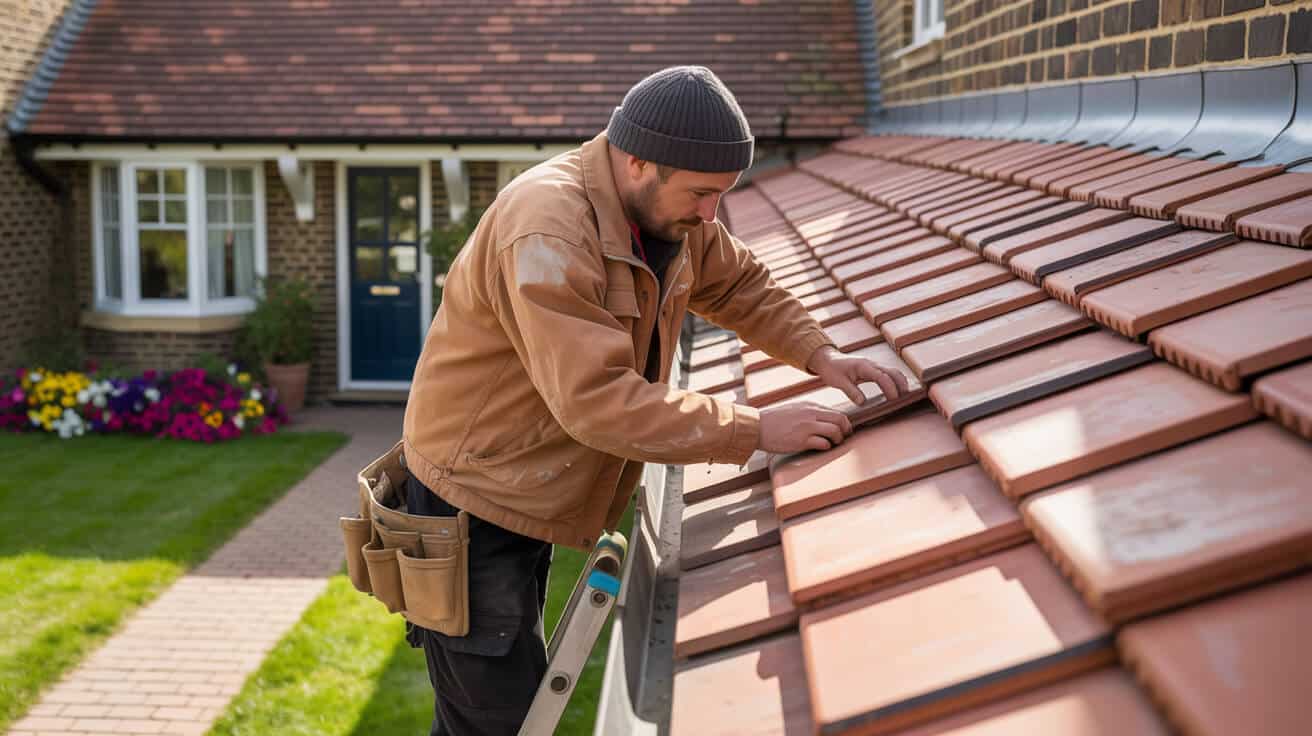 EPC for Homeowners: Boost Your Energy Efficiency Now
EPC for Homeowners: Boost Your Energy Efficiency Now

Navigating the home buying or selling process in the UK often comes with a lot of paperwork, and one crucial document you’ll likely encounter is the Energy Performance Certificate (EPC). This isn’t just another form to file away. An EPC rating is now more important than ever, particularly for homeowners. So what exactly is an EPC and how can it impact you? Let’s find out.
Table of Contents:
- What is an EPC for Homeowners?
- Why is an EPC for Homeowners Important?
- What Impacts Your EPC Rating?
- Understanding Your EPC Report
- The Future of EPCs for Homeowners
- FAQs about EPC for homeowners
- Conclusion
What is an EPC for Homeowners?
An EPC for homeowners is a certificate that rates your home’s energy efficiency on a scale of A to G. A is the most efficient and G is the least efficient. Think of it as a report card for your home’s energy performance, giving you insights into its energy consumption and environmental impact. It breaks down the energy performance of different parts of your house, from your boiler to your insulation. The certificate also offers recommendations on how to boost your rating.
Why is an EPC for Homeowners Important?
While having a good EPC rating might seem like a minor detail in the grand scheme of homeownership, it plays an increasingly vital role in today’s world.
Environmental Impact
Did you know 20% of the UK’s total carbon emissions come from our homes? Twenty percent of UK homes’ carbon emissions contribute to climate change. By improving your EPC rating and making your home more energy efficient, you are playing an active part in creating a greener future. Simple changes like switching to energy-saving lightbulbs or getting a more efficient boiler can add up.
Financial Savings
Improving Your EPC Rating often translates to reduced energy consumption, leading to lower energy bills. For instance, about £300 per year can be saved in fuel bills if gas is used more efficiently. Your EPC will list recommendations that can save you money on your energy bills, such as installing insulation.
Property Value
As we move towards a greener future, EPC ratings are becoming increasingly important to potential buyers. An energy-efficient house is not only appealing from an environmental standpoint, but also offers the promise of lower energy costs in the long run. This makes a property with a higher EPC rating a more desirable investment for savvy buyers.
What Impacts Your EPC Rating?
Numerous factors can impact your home’s EPC rating. Understanding what impacts the score can help you focus your efforts in making impactful changes. The age of your property and its total floor space can impact the score.
Insulation
The level of insulation in your loft, walls, and floors significantly affects how well your home retains heat, ultimately playing a crucial role in your EPC rating. Good insulation can hel
p you achieve a higher EPC rating.
Heating Systems
A modern and efficient heating system can improve your EPC rating substantially. For instance, replacing an old boiler with a newer model or investing in a heat pump can lead to a better score. Did you know the Boiler Upgrade Scheme provides £7,500 towards the cost of replacing fossil fuel heating systems with a heat pump?
Glazing
Well-fitted double or triple-glazed windows are a game-changer when it comes to energy efficiency. They reduce heat loss and can significantly enhance your home’s energy performance. Plus, double glazing can last up to 20 years, making it a worthwhile investment in the long run.
Understanding Your EPC Report
An EPC report may seem confusing at first glance, but they’re really not too hard to decipher. You’ll get a breakdown of your home’s energy performance, an estimated energy cost, and recommendations on improving your rating. It will show you the energy efficiency rating of your property, with a colour-coded graph.
How to Improve Your EPC Rating?

Boosting your EPC rating might seem daunting, but it doesn’t necessarily require a complete home renovation. Even small changes can make a difference. For e
xample, you can make cost-effective recommendations to improve a property’s energy performance, such as switching to LED lightbulbs.
Upgrade Your Boiler:
Upgrading to a more efficient boiler is one of the most impactful things you can do to improve your home’s energy performance and reduce your carbon footprint. Condensing boilers capture and reuse waste heat, drastically cutting down on the amount of energy wasted.
Improve Insulation
Don’t underestimate the power of insulation. Ensuring your home is adequately insulated, especially your loft, walls, and floors, can significantly impact your EPC rating. This will keep you warmer in winter and cooler in summer.
Invest in Energy-Efficient Windows
Consider replacing your existing windows with energy-efficient double or triple glazing, which reduces heat loss and minimises draughts. Although this can be an investment upfront, the long-term savings on heating costs are definitely worth considering.
Consider Renewable Energy Sources
If budget allows, think about investing in renewable energy sources, like solar panels or heat pumps. Solar panels will generate electricity and heat pumps are amazing for heating your home using less energy.
Finding a Qualified Assessor
Once you’ve made improvements, you’ll need a reassessment to reflect the changes in your EPC rating. To ensure you’re getting an accurate evaluation, it’s crucial to hire a qualified Domestic Energy Assessor who is accredited to carry out EPC assessments. It’s simple to find a certified EPC assessor for an assessment. All you need to do is check out the EPC register.
The Future of EPCs for Homeowners
With climate change being top-of-mind for homeowners in the UK, you might be wondering: what does the future hold for EPCs? The government is committed to improving the energy efficiency of UK homes and has set ambitious targets for the coming years. For instance, as part of the government’s Net Zero Strategy, there is a proposal for all homes to achieve at least an EPC band C rating by 2035. It’s important to stay updated with any new regulations as a homeowner.
FAQs about EPC for homeowners
What is a good EPC for a house?
In England and Wales, a good EPC for a house is considered to be band C or above. This signifies that the property is relatively energy efficient.
Can I do an EPC on my own house?
You are not allowed to do an EPC on your own property. You’ll need to hire an accredited Domestic Energy Assessor to conduct the assessment and issue the EPC.
What are the EPC requirements for landlords in 2025?
Current proposals suggest that all new tenancies from 2025 will require an EPC rating of C. All existing tenancies will require an EPC rating of C by 2028. An EPC rating of B for new tenancies has been proposed by 2030.
What is the minimum EPC rating to sell a house?
You are not legally required to have a minimum EPC rating to sell your home in England and Wales. It is still a legal requirement to have a valid EPC for the property before it can be marketed for sale or rent, even if it has a low rating. You will not be able to sell or rent out your property without a valid EPC.
Conclusion
In short, the EPC has evolved from being just a piece of paper to a significant factor that can influence your finances, impact your home’s value, and even contribute to your efforts in reducing your carbon footprint. As we move towards a greener world, it’s essential for homeowners in the UK to embrace EPCs as a tool for a more sustainable and cost-effective living experience. An EPC isn’t just about complying with regulations; it’s about creating a more energy-efficient, environmentally friendly, and ultimately comfortable home for you and your loved ones.



